Staying Financially Sound: Scott Warren Talks Tactics

- Accurate and timely monthly financials.
- Establishing a strong financial foundation.
- The surprising mistake businesses make.
- Advice for all growing businesses.
Here’s what he had to say.
Q: What are the first steps to establish accurate and timely monthly financials?
Step 1. Make sure you have good and timely input. The data needs to be submitted timely and accurately coded. The organization should have in place documented policies and procedures to ensure the data input is done correctly.
Step 2. Incorporate checks and balances into your practice. You need to reconcile your subsidiary accounts (such as accounts receivable, accounts payable, and cash) to the general ledger number. Make sure your details equal your totals. Those are the first steps to making sure that you have accurate and timely monthly financials.
Q: What are the essentials to build a strong financial foundation?
First, set-up internal controls. Make sure your assets are protected. Unfortunately, the move to electronic systems has not reduced the opportunity for fraud; if anything, it has increased. Your internal controls, including separation of duties and oversight are important to the accuracy of your reporting.
Next, understand your key drivers. Think about the important components in your business or industry. Examples of key drivers are bank treasury management tools, payroll, and inventory turns. The drivers vary depending on the individual company and industry – understanding what they are has a strong impact on the balance sheet. Other key drivers may be chargeable hours, revenue per employee, sales per square foot; I could go on another hundred measures.
Then, evaluate the risks your business and industry life cycle face. Is it competition? Is it price influences? Is it a new tax law? How would a potential hurricane affect your business? What is the effect of a major system failure or breach? What should you be considering based on your position in your company’s life cycle? Delineate a list of your risks and understand the true effects they might have. Then, combine that with an evaluation of the probability of those risks. That allows you to look at the potential downfalls and impact on your business. A risk analysis allows you to reduce the impact and measure success against those risks in the future. You will also want to relate the potential impact to individual line items on the income statement, balance sheet, and understand the effect it can have on the overall financial health of your business.
Q: What is the most surprising mistake business owners make?
The surprising mistake I see again and again is the number of owners who never look at their balance sheet. There is so much information you can gain especially when you review the balance sheet in combination with your sources and uses of funds and cash flow statement. That is how you get better insight into what your balance sheet means to you.
Knowing your assets, and reviewing your balance sheet from one period to the next, is the key to truly seeing how your cash flow is affected by the balance sheet items such as receivables, inventory or payables as well as the debt obligations. In addition, the common ratios (like debt to equity) from your balance sheet, let you know your overall financial health.
Q: What is your number one piece of advice you give all business owners?
Pay attention to cash flow, cash flow, and cash flow. When you are in growth mode, your business is going to be cash constrained. We talked about key drivers earlier. You need to understand the effect these drivers have on your cash flow. It is critical to evaluate how you are performing against your budget and your strategic plan. When all of this comes together, it allows a growing business to manage expectations and make smart business choices. This is the work we are passionate about; helping our clients grow to the next level to make potential happen.

Scott Warren is a co-founder and director of Warren Whitney and a senior member of the management teams for several of the firm’s largest clients. Working primarily with clients requiring senior level business financial management, or systems expertise, he brings more than 20 years of experience in helping organizations manage change. Learn more about Scott.
Warren Whitney is a trusted Sponsor of VA Council of CEOs.
Being an Entrepreneur Is As Easy As Parenting

[Guest post by Rich Reinecke, Co-founder at The Fahrenheit Group and VA Council of CEOs Sponsor]
Often, people equate being an entrepreneur with freedom and flexibility. They have visions of multi-week vacations, days spent playing golf, and coming into the office late and leaving early while the troops deliver superior results. In reality, it takes extreme intestinal fortitude to withstand the emotional rollercoaster of navigating the milestones necessary to achieve entrepreneurial success. Interestingly, many of the lessons I’ve learned in business also apply to my “Dad job.”
My twin boys, who are seniors in high school, have formed a band called 5 Second Rule. Running a band is a lot like running a small business: You have to work as a team to create a product (in this case, music), budget time and money, acquire equipment (one of my sons is a guitar player and has become quite proficient at acquiring gear), market to potential clients, deliver on performance expectations…and execute.
“The allure of launching a business venture often outweighs the realization that entrepreneurial success requires risk.”
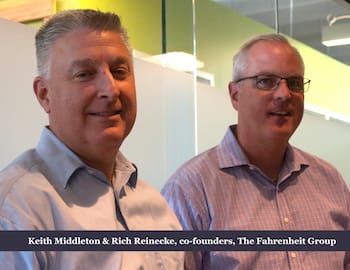
The allure of launching a business venture often outweighs the realization that entrepreneurial success requires risk. Great entrepreneurs, like successful parents, take calculated risks constantly: We will never see our kids or our businesses grow into what they can be if we don’t allow ourselves, our employees or our kids to take risks. Not everyone can stomach the risk of building something new, letting something go or investing in a new idea. But those with an entrepreneurial spirit thrive on these kinds of challenges and realize that each failure is an opportunity to move forward to the next experiment.
Another key attribute I see in most successful entrepreneurs is an incredible commitment and ability to execute. In business and at home, it comes down to a commitment to execution. The commitment to being a great parent or entrepreneur consistently requires placing many important things in distant second place—things like sleep, time with friends or actually playing that round of golf.
Life balance was, frankly, mostly non-existent when we arrived home with newborn twin boys—at least for a period of time. The same was true as I grew a business. Those who lack an entrepreneurial spirit may not understand or appreciate the obsession with execution being a successful entrepreneur requires. But my commitment to doing whatever it takes to raise great kids is no different from my commitment to doing whatever it takes to build a great business.
“Most see the hurdles in front of goals. I think parents and entrepreneurs see the actions needed to get around them.”
Having an action-oriented mindset is something I find critical to running our high-growth firm. As a simple example, in year two of our business, our angel investor mentioned that we should consider moving our office to another location where space was available. Before the end of the day, we had picked up our operation and moved and were back to running the business. Many business owners would get stuck on the obstacles to getting through the move. We took action. I can apply this simple example to moving into new service lines, acquiring new talent and making impactful investments in our business. Most see the hurdles in front of goals. I think parents and entrepreneurs see the actions needed to get around them.
My business partner and I have been blessed to build a great team of people, a great brand and a great business by challenging each other to be entrepreneurial, to take action on calculated risks, and to have faith in our decisions. I’m equally blessed that this philosophy has served me well in my family life, as my wife and I have raised entrepreneurially spirited kids who are unafraid to take risks. Rock on, 5 Second Rule!
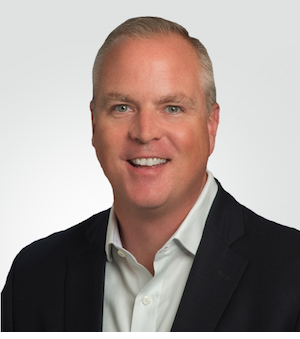
Rich Reinecke is the Co-Founder of The Fahrenheit Group and a recruiting industry veteran with a unique blend of large corporate experience and dynamic entrepreneurial spirit. Rich works with every level of business, from emerging growth and middle-market to Fortune 500 companies, and is key in client development and recruiting talent both internally and for clients. Learn more.
The Fahrenheit Group is a valued Sponsor of Virginia Council of CEOs.
VACEOs Members Top 2018 RVA 25 and Inc 5000 Fastest-Growing Business Lists

Our Members represent a wide range of industries and experiences, and they are frequently listed within the annual RVA 25 and Inc 5000 “fastest-growing” business lists.
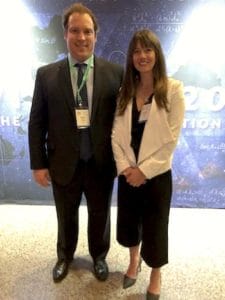
Not a Member? You should be! Our network includes an incredible network of business owners ready to help you navigate some of your toughest business challenges. Visit VACEOs membership to learn more.
Congratulations to all of our nominees!
(Pictured: COLAB President Eddie O’Leary with COO Morgan Witham at RVA 25 event.)
| Name | Accolade | Rank | Growth* | Industry |
|---|---|---|---|---|
| Canal Capital Management | Inc 5000 | 4200 | 81% | Financial Services |
| CityParking Inc. | RVA25 | 19 | 44% | Business Services |
| COLAB Multimedia | Inc 5000 | 3707 | 99% | Advertising/Marketing |
| COLAB Multimedia | RVA25 | 25 | 37% | Advertising/Marketing |
| Dietitians On Demand | Inc 5000 | 4116 | 84% | Healthcare Services |
| Dominion Payroll | Inc 5000 | 3362 | 115% | Business Services |
| Morton | Inc 5000 | 4413 | 75% | IT Services |
| Networking Technologies and Support | Inc 5000 | 4830 | 62% | IT Services |
| Occasionally Made | RVA25 | 9 | 122% | Wholesale and Manufacturing |
| Old Dominion Mechanical | Inc 5000 | 1066 | 462% | HVAC and Plumbing |
| Productive AV | Inc 5000 | 1222 | 395% | Business Services |
| Productive AV | RVA25 | 11 | 109% | Business Services |
| SHOCKOE | Inc 5000 | 815 | 620% | IT Services |
| SOLVARIA | Inc 5000 | 4809 | 63% | IT Services |
| Swig | Inc 5000 | 1766 | 258% | Advertising/Marketing |
| Taradel | Inc 5000 | 2918 | 140% | Advertising/Marketing |
| Taradel | RVA25 | 24 | 37% | Advertising/Marketing |
| Timmons Group | Inc 5000 | 4644 | 68% | Engineering Services |
| UrbanCore Construction | Inc 5000 | 303 | 1626% | Construction |
| WebStrategies Inc. | RVA25 | 20 | 42% | Advertising/Marketing |
*RVA 25: Average Annual Growth 2015-2017
*Inc 5000: 3-year growth rate
Governor Ralph Northam Speaks Before Virginia Council of CEOs
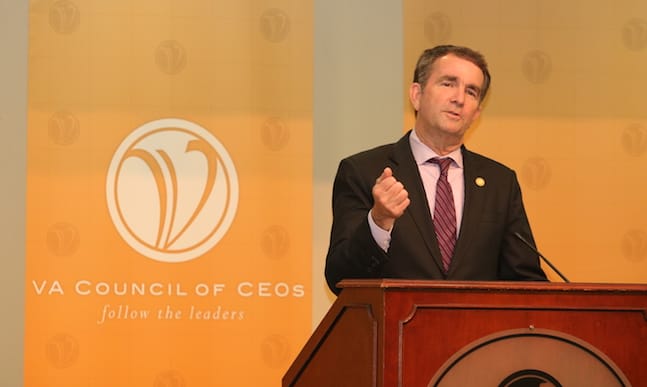
On Thursday, September 20, 2018, Governor Ralph Northam stood before more than 140 Virginia Council of CEOs members and their guests to speak, in part, about the state of Virginia’s economy. Secretary of Commerce and Trade Brian Ball accompanied him. Governor Northam’s address marked the fifth time the sitting governor has addressed the Council. Governor Mark Warner was the first in 2003.
The Governor addressed the crowd for approximately 15 minutes before answering specific questions from an audience largely made up of small to mid-size business owners. Northam chose to take off his governor’s hat for the event, opting instead to talk plainly about “what it is we can do to help businesses start in Virginia, but also to help businesses grow and contribute to the economy and your lifestyle.”
“I Understand What It Is to Start a Business”
Northam, Virginia’s 73rd governor, possesses a diverse background that includes positions as a U.S. Army doctor, a pediatric neurologist, a business editor, a state senator and Virginia lieutenant governor. He is also a small business owner, having started the Children’s Specialty Group with his wife in 1996.
“We practiced under the umbrella of Children’s Hospital of The King’s Daughters,” explained Northam. “We have grown that practice to about a hundred pediatric sub-specialists now. We employ about 250 people. I understand a little bit about what it is to start a business – and then grow a business – in Virginia.”
Like most CEOs, Northam is concerned about finding qualified workers for his business. That’s why he’s also interested in seeing Virginia develop a base of workers for the 21st-century job market, which he defined as jobs in science, technology, engineering, the arts, math and healthcare. “Things like cybersecurity, unmanned aerial systems, biotechnology, artificial intelligence, data collection, data analysis – these are the jobs of the 21st century,” said Northam. He also emphasized the importance of growing programs within Virginia’s community college system, with a special focus on certification and apprenticeship programs and high school vocational and technical training to “keep that pipeline open from our students to the business community.”
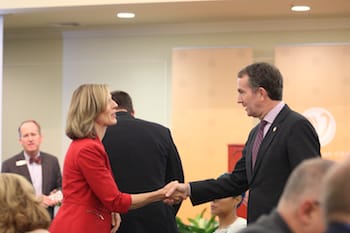
“We Have a Number of Tools in Our Toolbox to Help Businesses”
New business owners are often faced with a number of daunting questions – like how to navigate Virginia’s tax code, for example. Northam stressed that his administration is invested in making things easier. “I just wanted to let you know that we have your back, if you will,” he said. “We have several programs in Virginia to help startups. One of them is called VirginiaScaling4Growth. We also have workshops that we sponsor throughout the Commonwealth of Virginia, and if you or someone in your presence needs help, either growing your business or starting your business, I think we have a really good economic team.”
“We work very closely with the VEDP (Virginia Economic Development Partnership), which is the economic development partnership in Virginia, and we have a number of tools in our toolbox that we can now help businesses with and also help to attract businesses,” Northam added.
The governor also spoke about the state of Virginia’s transportation system and the Commonwealth’s unemployment rate, and he expressed optimism about making Virginia agencies more efficient and the tax code more user-friendly to attract new business to the state.
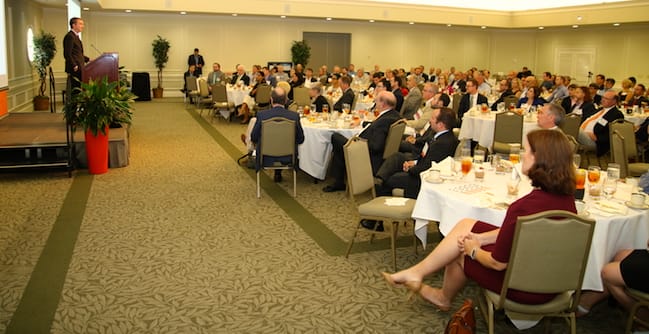
“I remind folks all the time that it is small businesses, it is startups, that are the backbone of our economy. I appreciate all that you all do here to drive and support Virginia’s economy.” – Ralph Northam, 73rd Governor of Virginia, speaking at Virginia Council of CEOs Quarterly Luncheon
Q&A Session: What’s on the Minds of Virginia CEOs
Governor Northam welcomed questions from the floor after his presentation, and CEOs in the audience quickly peppered him with a range of questions on topics that included how to address the flooding in Tidewater and Eastern Shore regions, where specifically to go for workforce training program assistance, a clarification of his stance on a recent Executive Order about worker misclassification and independent contractors, and his perspective on public/private partnerships.
In closing, the governor asked the business owners in the room to help him elevate Virginia as a place to attract business, stating, “With all of us in this room collectively and the business community, I think if we keep working together, once again soon, Virginia will be the number-one state in this country to do business.”
About the Virginia Council of CEOs
The Virginia Council of CEOs has connected Central Virginia CEOs with local and national thought leadership since 2000. Our think tank includes award-winning companies across industries like IT services, marketing & advertising, logistics & transportation, business products & services, consumer products, human resources, finance, health services, and more. Learn about VACEOs membership.
Gelati Celesti’s Steve Rosser: Possibly the Happiest Man in the World
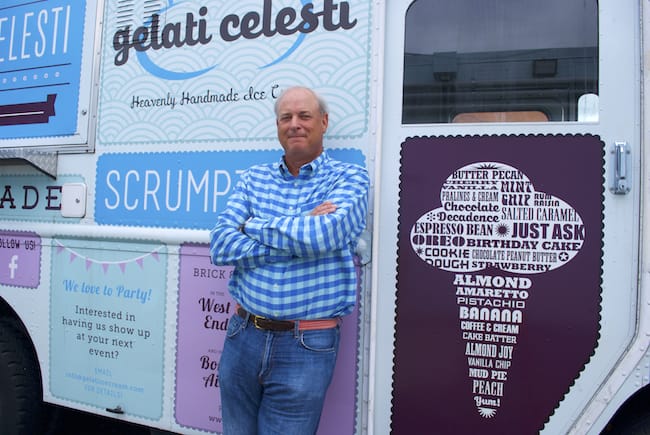
We believe Steve Rosser might just be the happiest man in the world.
We met him earlier this month at his new 9,250-square-foot production facility at 1908 North Hamilton Street in Richmond, just five weeks after the facility started producing what is arguably one of the most addictive of products ever made: Gelati Celesti ice cream.
We were worried Steve might not have time to chat in the middle of opening a new production facility during his busiest time of year, but, as usual, he was welcoming and all smiles. And why not? He’s grown a small ice cream shop with a small production area out back and a staff of nine into a local ice cream shop icon – with four retail stores, a wholesale customer stream and 110 employees.
Steve’s product may be a soft sell, but don’t underestimate this entrepreneur. He’s an accomplished businessman with a point to prove. We spoke to him about managing growth and balancing work and life. We learned about what he considers the most important business decision he’s made and more. Here’s what this VACEOs member had to say.
LIFE IS A LITTLE DIFFERENT NOW
Steve’s background includes long stints in executive-level positions with Luck Stone Corporation and Reynolds Metals Company. In 2010, it was time for a change. He and his wife, Kim, purchased Gelati Celesti and never looked back. The brand quickly grew from one store on Broad Street in Henrico County to multiple locations across Richmond. In February of this year, a fourth retail location opened at 1400 North Boulevard in Scott’s Addition.
Gelati Celesti Growth Timeline
- 2010: Steve and Kim Rosser purchase Gelati Celesti shop in Golds Gym Plaza in the West End from Peter Edmonds, who co-founded the business with his father in 1984.
- 2011: The Rossers purchase a production facility on Dabney Road to increase ice cream making capacity
- 2012: The existing wholesale business was greatly expanded to include more Richmond area restaurants
- 2012: Second retail location opens in Bon Air
- 2013: Gelati Celesti Food Truck makes the scene
- 2014: Third retail location opens in Short Pump
- 2017: Fourth retail location opens in Scott’s Addition
- 2018: New production facility on Hamilton Street opens to accommodate growth. Dabney Road production facility closes
In May 2018, Gelati Celesti opened a new production facility on Hamilton Street that’s nearly quadruple the size of the former building on Dabney Road. It will serve all of the business’ retail shops and wholesale accounts. “Now we have plenty of room, and the great news is, it should hold us about eight years,” says Steve. “We’ve got a lot of growth ahead of us.”
“ONE OF THE MOST IMPORTANT THINGS I’VE DONE SINCE I BOUGHT THE COMPANY”
For Steve, managing his company’s growth has been a matter of business alignment and defining the culture. “I was very fortunate because in a previous career before this, I was a general manager in a corporate business, so I had the opportunity to run a business,” he explains. “What I think is essential is constant alignment. Everything has to align for what the ultimate objective is.”
Steve’s alignment began with his first facility expansion, which satisfied the initial demand for his product. Then the right leadership was put in place to hire the right people. He sums it up this way: “Make sure you can make it, you can manage it, you can serve it, and you can lead it. And then you’re ready to open stores.”
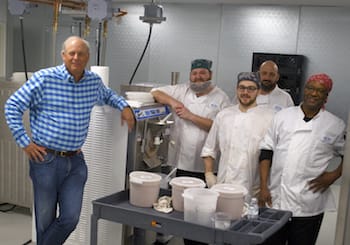
Steve Rosser with his production team in new facility.
After the second Gelati Celesti store opened and his food truck service was in high demand, Steve quickly realized he couldn’t be everywhere at once and his culture was in jeopardy. So he called in some help. He and his management team worked with John Sarvay at Floricane.
“We got our leaders together and talked about what we really wanted to be, and the profile of a person who would fit,” Steve says. “We use that information when we talk with prospective employees. We’re able to say, ‘This is who we are. Does that mesh with your personality, your career objectives?’ That’s one of the most important things I’ve done since I bought the company: work on the culture. One of the most important decisions we make here is, ‘Who do we hire?’”
SEVEN DAYS A WEEK, 363 DAYS A YEAR. WORK VS. LIFE: IS THERE BALANCE?
Gelati Celesti stores are open seven days a week, 363 days a year, and stay open until 10:00 or 11:00 p.m. at night. “I’m always on duty!” says Steve. Still, he insists he does balance work and life beautifully – especially now that he has a great team in place to manage the day-to-day operations.
“I have a great balance, but it’s blended, and that’s the difference,” Steve explains. “Entrepreneurs plan their personal and work life. During the first two or three years, my vacations were coming here, and I loved it! Now I do take more time away, because we’ve empowered leaders who know what to do. My job is management of the culture and future business development, so the day-to-day stuff takes care of itself. That’s because we have a great team of people.”
“I HAD CONFIDENCE IN MYSELF, BUT I NEEDED TO PROVE IT”
At 53 years of age, Steve came into entrepreneurship relatively late in life. His primary motivation? “I always had this need to know if I could do something on my own,” he says. “I had confidence in myself, but I needed to prove it. I needed to prove that I could take this business and make it grow.”
And now he’s totally committed to making it grow in the Virginia Beach market. He plans to open three stores there, as well as entering other markets in Virginia. He also hopes to add at least three more stores in Richmond. “That will take care of the next three or four more years. At that point, I’ll be working on the next stage of my life.”
For now, he’s clearly a happy man.
“I read something in Richmond BizSense recently about a woman who just opened up a candy shop on Grove and Libbie,” he says. “I absolutely understood it when she talked about how she used to be an attorney and she got so she didn’t like to practice law any longer. She said, ‘No one enjoys calling their lawyer, but everyone loves coming to the candy store.’ Ice cream is a very similar situation. People come in and they’re ready to smile – to have a few moments of joy. That’s what we do.”

Recent Comments